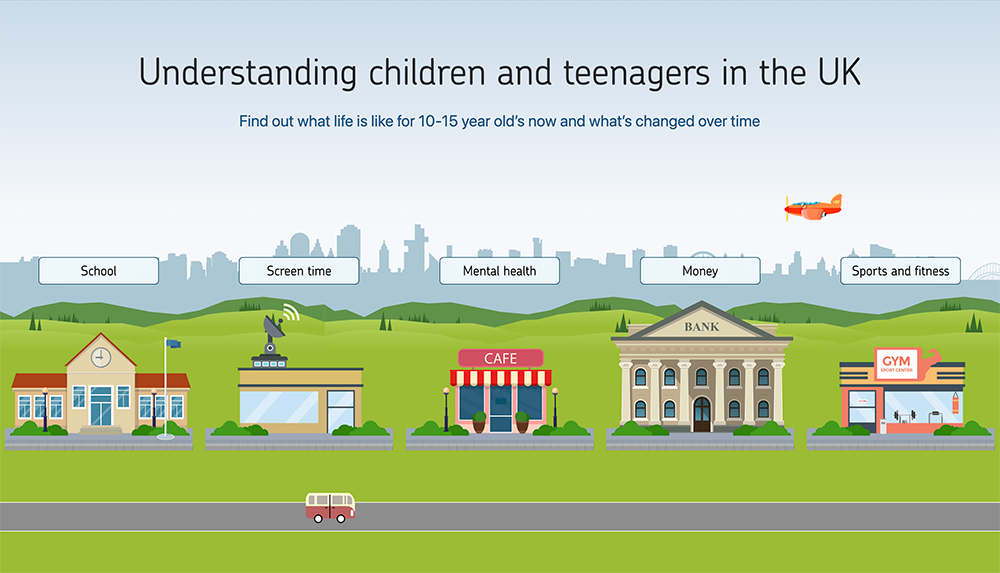What information does Understanding Society collect from young people?
What about younger children?
Questions asked at specific ages
Tips for analysts
Index terms
To find out about the specific questions asked in the Study use the index terms where you can search for children and young people variables including children, child care, family life and fertility.
Training: Using UKHLS child and youth data
This workshop runs twice a year and is for new users of our children and youth data. It explains the different files and data collected, and helps users manage the data for statistical analysis for their own research projects.
Use the code creator
Create your own Stata code to extract the data you need from the EUL main survey. Save your variables, then use the code creator to generate your code. The code will allow you to create your own data file containing your variable selection, plus a handy set of commonly used sociodemographic variables and cross-sectional and longitudinal weights.
Need help?
Visit our new user pathway to explore the data and online resources or contact the User Support forum if you have a question for the Study team.
Blog: Young people’s aspirations rise with parents’ income
Most teenagers are optimistic, but life goals are strongly influenced by wealth
User deposited syntax: Transition to adulthood
If you have syntax that you would like to share please contact the user support team.
Podcast: Pregnancy and early childhood data
Find out about the PEACH data file and how to use it.
Working Paper: Recruiting and retaining young people in longitudinal surveys
Young interviewees from Understanding Society indicate some useful strategies for recruitment and retention in surveys that focus on participation mode, incentives, study materials, the role of the mother, and other factors affecting retention.



